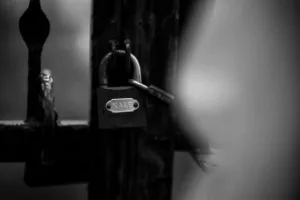
The National Crime Agency (NCA) has issued a stark warning about the rise of online gangs targeting girls as young as 11 with sadistic and manipulative tactics. These groups, often composed of teenage boys, operate on platforms like Telegram, Discord, and even gaming environments such as Roblox, leveraging social engineering and coercion to exploit victims1. The NCA reports a six-fold increase in such cases between 2022 and 2024, with thousands of victims subjected to self-harm, sexual abuse, and even threats against family members or pets2.
Key Tactics and Technical Modus Operandi
These gangs, often referred to as “Com networks” (short for “Community”), employ a mix of psychological manipulation and technical subterfuge. Victims are groomed into believing they are in relationships, only to be blackmailed or coerced into producing harmful content. Tactics include doxxing, swatting (fake police raids), and malware deployment to maintain control over victims3. The NCA highlights cases where offenders use cybercrime tools like malware and fraud schemes to further exploit victims, blurring the lines between traditional grooming and organized cybercrime1.
Platforms like Telegram and Discord are frequently used due to their encryption and ease of creating private groups. Offenders adapt quickly when moderation efforts are stepped up, migrating to new channels or platforms. A case study involving Cameron Finnigan, a 19-year-old from West Sussex, revealed how these networks overlap with extremist ideologies, including Satanist terror networks4.
Relevance to Security Professionals
For security teams, this trend underscores the need for enhanced monitoring of encrypted platforms and gaming environments where grooming often occurs. The use of malware and doxxing tools suggests that these groups are technically capable, requiring defensive measures such as:
- Enhanced endpoint detection for malware linked to grooming tools (e.g., keyloggers, screen capture software).
- Monitoring for unusual patterns in social engineering attacks, particularly targeting minors.
- Collaboration with law enforcement to track and dismantle these networks.
The UK’s Online Safety Act aims to hold tech companies accountable, but enforcement remains a challenge5. Security researchers should also consider the role of AI-driven content moderation tools to flag grooming behavior proactively.
Conclusion
The intersection of cybercrime and online grooming presents a complex challenge for both law enforcement and cybersecurity professionals. While technical measures can mitigate some risks, the psychological manipulation tactics used by these gangs require a multi-faceted approach involving education, platform accountability, and robust legal frameworks. The NCA’s findings highlight an urgent need for cross-sector collaboration to protect vulnerable users.
References
- National Crime Agency, “Sadistic online harm groups putting people at unprecedented risk, warns the NCA,” https://nationalcrimeagency.gov.uk/news/sadistic-online-harm-groups-putting-people-at-unprecedented-risk-warns-the-nca, 2025.
- BBC News, “Teen jailed over Satanist terror network,” https://bbc.com/news/articles/cx2x9lk9grxo, 2025.
- The Guardian, “Online gangs of teenage boys sharing extreme material an emerging threat in UK,” https://theguardian.com/uk-news/2025/mar/25/online-gangs-teenage-boys-sharing-extreme-material-emerging-threat-uk, 2025.
- Sky News, “Sadism, sexual abuse and self-harm: Inside the online gangs where boys compete to be cruel,” https://news.sky.com/story/sadism-sexual-abuse-and-self-harm-inside-the-online-gangs-where-boys-compete-to-be-cruel-13335183, 2025.
- Channel 4, *Groomed: A National Scandal*, documentary, 2025.






